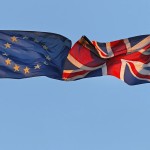UK Prepares for Brexit Adjustment Following GBP “Flash Crash”
 Less than one week after the surprising 6 percent drop in the value of the GBP termed by analysts as a “flash crash,” British markets, policymakers and economists are looking ahead to what the coming weeks and months will bring. Even as experts have weighed in on the adjustment, often presenting it as a necessary and even beneficial economic correction, however, the GBP has continued in a slower slide.
Less than one week after the surprising 6 percent drop in the value of the GBP termed by analysts as a “flash crash,” British markets, policymakers and economists are looking ahead to what the coming weeks and months will bring. Even as experts have weighed in on the adjustment, often presenting it as a necessary and even beneficial economic correction, however, the GBP has continued in a slower slide.
The initial crash, which occurred on October 6th, reduced the already weakened pound to .79 against the USD, a 31-year low for Britain’s traditionally highly valued currency. In the following days, the pound continued its slide at a more gradual rate, eventually reaching .81 against the dollar as of Tuesday night. Experts are currently divided as to where the GBP will find its new level, as the currency was previously expected to gradually decrease to a rate of about .83 against the dollar over the next several months.
The cause of the crash has also been disputed. Many analysts have suggested that low liquidity in early trading on Friday morning allowed what would have otherwise been a fairly normal drop to turn into the sudden decrease that was seen over the course of the trading day. Others, however, have been more keen to tie the crash to the formal proceedings of the Brexit, specifically statements made by French President Francois Hollande that the European Union would have to negotiate from a position of strength and stick to a hard line version of the Brexit agreement moving forward. The crash may also, in part, have been precipitated by British Prime Minister Theresa May’s proposal of a timeline for the Brexit, which scheduled the invocation of Article 50 for 2017 and the withdrawal of Britain from the European Union for 2019.
The weakening of the pound, however, has not been seen universally as a negative development. Decreased value against other global currencies may help to make British exports more accessible to a global market, buffering the effects of Britain’s exit from the EU’s tariff free zone. Additionally, tourism in the UK could benefit as visitors find goods and services